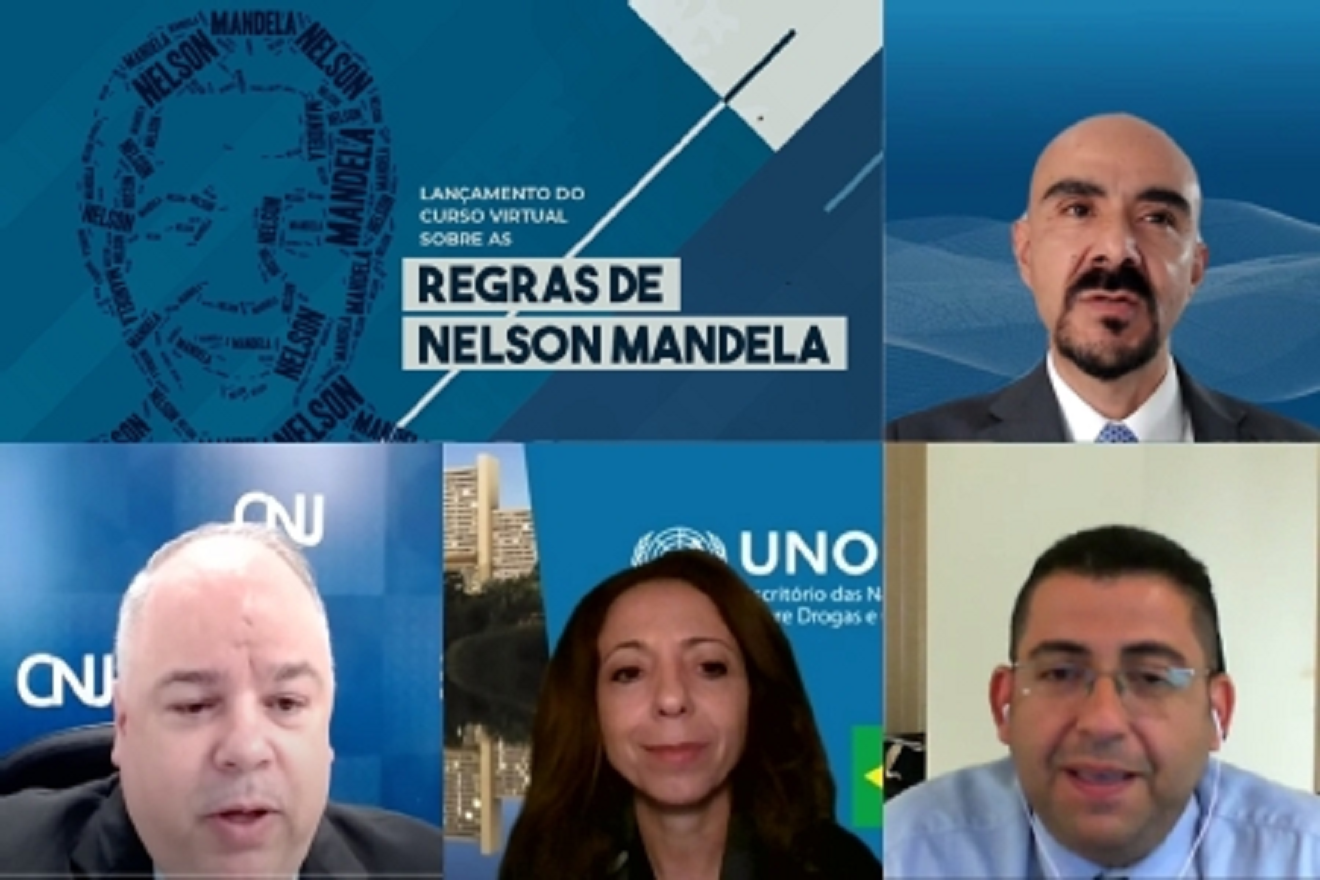
Brasília, 17 December 2021 – On 16 December, the United Nations Office on Drugs and Crime (UNODC) in Brazil launched the Portuguese version of an online course on the United Nations Standard Minimum Rules for the Treatment of Prisoners, also known as the Nelson Mandela Rules.
The initiative took place under the Fazendo Justiça program, a partnership between the National Council of Justice (CNJ) and the United Nations Development Programme (UNDP), with support from the National Penitentiary Department (DEPEN), to focus on challenges concerning deprivation of liberty. The partnership with UNODC, which is the guardian of the Nelson Mandela Rules, seeks to strengthen pre-trial detention hearings throughout the country.
Available in ten languages and with more than 40 thousand accesses in over 150 countries, the course is an essential tool for understanding and applying the Nelson Mandela Rules as the universally recognized minimum standard for prison management and the treatment of prisoners.
Launching Ceremony - Luís Lanfredi, coordinator of the Department for Monitoring and Supervision of the Prison System and the System for Execution of Socio-Educational Measures of the CNJ, emphasized at the opening of the event that the Nelson Mandela Rules need to be known and applied in Brazil for a more effective and humane criminal justice. "We work with people who cannot be forgotten or neglected in their individualities. The Mandela Rules offer us minimum international standards so that we can practice penal execution in the most inclusive sense of the word, in a manner aligned with our Federal Constitution and ordinary legislation."
According to UNDP's deputy representative in Brazil, Carlos Arboleda, the overcrowding of prison units has been a reason for concern from the international community. "In the last two exercises of the Universal Periodic Review of Brazil conducted by United Nations member states before the UN Human Rights Council, a large part of the recommendations formulated to the country regard the conditions of its prison system."
The UNODC representative in Brazil, Elena Abatti, recalled the commitment of the UN system to support member states in addressing global challenges on incarceration from the 2030 Agenda. "The expectation is that the criminal justice response will adopt a long-term strategy of crime prevention, rehabilitation, with an emphasis on the most vulnerable groups, leaving no one behind."
The DEPEN director of Penitentiary Policies, Sandro Abel, meanwhile, highlighted that the partnerships in the Fazendo Justiça programme have enabled intense replication, reproduction and multiplication of knowledge in recent months. "More and more we are including new people so that we can open our minds and respect, above all, human rights. DEPEN could not do that alone."
UNODC participants - With a course load of 200 minutes, divided into seven modules, the course on the Mandela Rules is aimed at prison officers, professionals who work with the theme of prison unit supervision and other interested people from Brazil and other Portuguese-speaking countries such as Portugal, Angola, Mozambique and Cape Verde. "We cannot forget that our community, which has Portuguese as its official language, represents 278 million people. This online course is another pedagogical resource that will bring institutional value to the training of operators," said the head of UNODC Mozambique, Marcos Teixeira.
To learn more: http://www.agenda2030.com.br/